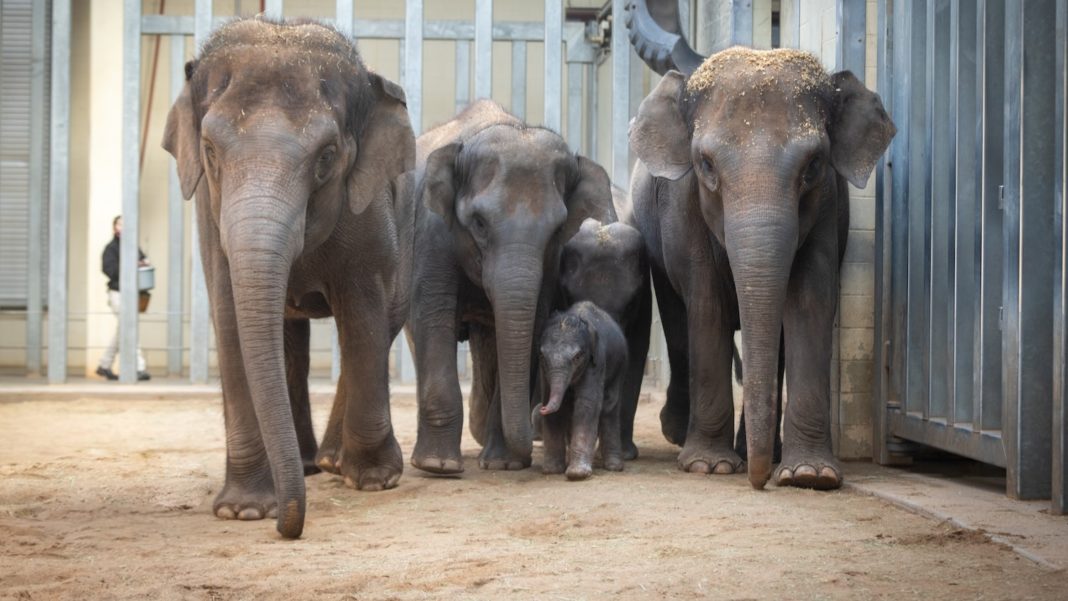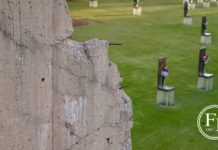Last Updated on March 14, 2022, 8:40 AM | Published: March 11, 2022
OKLAHOMA CITY (Free Press) — The longstanding partnership between the Oklahoma City Zoo and Botanical Garden and the Oklahoma Blood Institute was newly solidified this week with the donation from OBI of a centrifuge to the zoo’s Joan Kirkpatrick Animal Hospital.
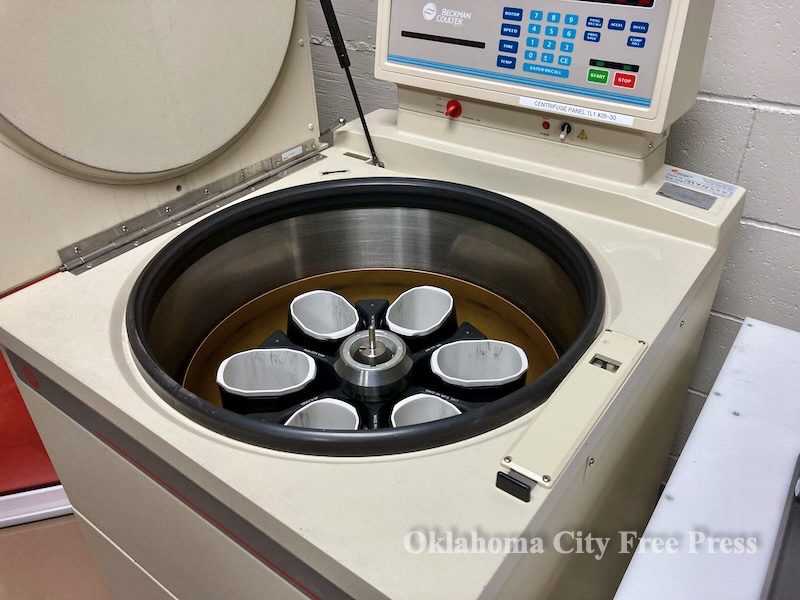
The long-sought piece of equipment (the cost of which can easily exceed $20,000) not only provides zoo veterinarians with a valuable new resource for studying and treating the animals in their care, but also promises to elevate the OKC Zoo’s standing within the nationwide, and even global, research communities to world-class levels.
“We’ve been together in trying to uplift our city for a long time, but we’re also partners in saving lives” said Dr. John Armitage, CEO of the Oklahoma Blood Institute, in a short statement to the press Wednesday.
Dire needs at home
The most immediate life-saving opportunities that this centrifuge can provide for the zoo are advancements in the research and treatment of EEHV, a persistent and deadly herpes virus affecting elephants worldwide, both wild and in captivity.
While the OKC Zoo has long dedicated research efforts to the virus, centering on their impressive multi-generation herd of eight Asian Elephants, the life-threatening concerns hit home in August of 2021 when three year-old Kairavi was badly stricken with the EEHV1A strain and required multiple blood transfusions, as well as plasma and stem cell treatments, in order to survive and recover.
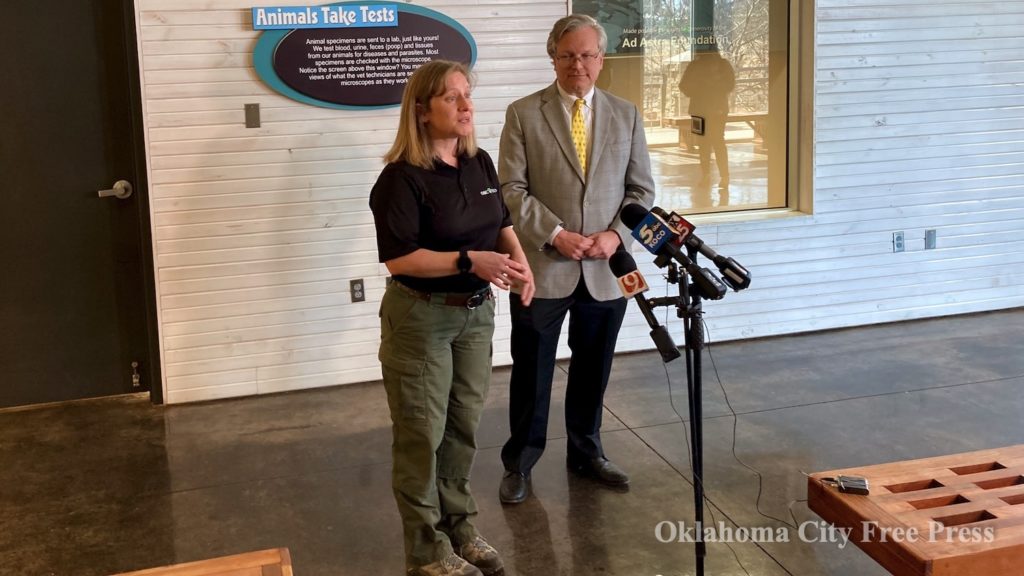
“One of the things we really could have used at that time was a blood centrifuge,” said Dr. Jennifer D’Agostino, Director of Veterinary Services at Joan Kirkpatrick Animal Hospital. “When you collect blood, oftentimes they will spin it [in a high-speed centrifuge like the one that was donated] and separate it into plasma, red blood cells, maybe even platelets, and you can use those different portions of the blood product to target your therapy. Well, we didn’t have that centrifuge, so we had to just let gravity do its job, which takes a lot of time.”
World-class research
In order to hopefully avoid that time-consuming approach in the future, Dr. D’Agostino personally reached out to the Oklahoma Blood Institute to ask about the possibility of getting one of their centrifuges the next time the OBI upgraded their equipment. Rather than part-out the machine as replacement pieces, Dr. Armitage said they were more than happy to see this centrifuge get a second life helping the zoo.
Though the equipment is likely to prove invaluable in the treatment of numerous animals throughout the zoo, the new acquisition is guaranteed to significantly advance the team’s already substantial research into EEHV, particularly in the continuing race toward a vaccine.
“That’s kind of our thing right now,” Dr. D’Agostino told me in a conversation later in the day after a live demonstration of how the vet techs draw blood from the elephants. “We’re really hoping to get a vaccine so that we can create the right kind of exposure at the right time for the elephants so that they don’t get sick. That’s our goal.”
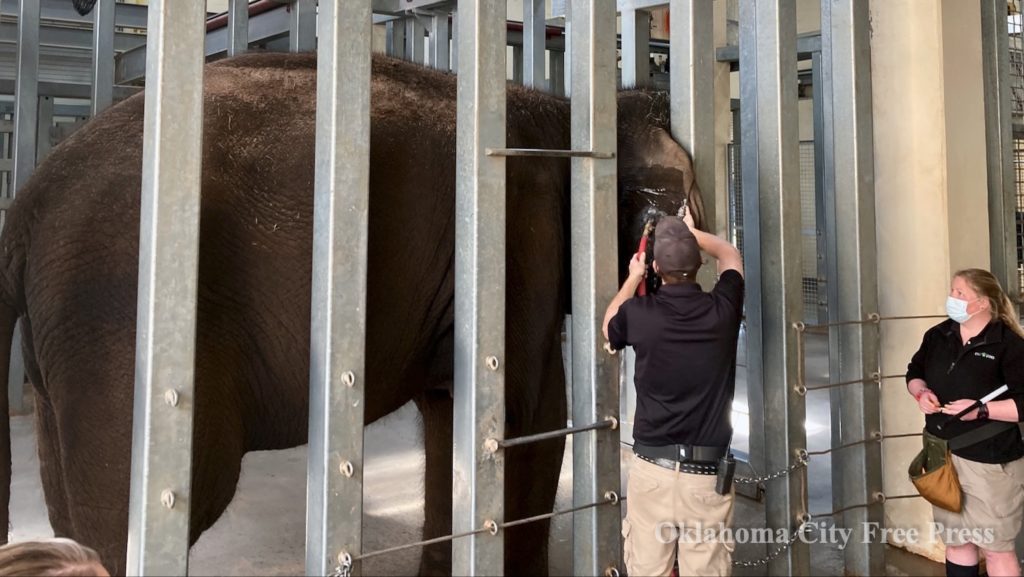
The new centrifuge is not only a major step in that direction, but as it is a highly specialized piece of equipment that most zoos and veterinary hospitals rarely, if ever, have access to, it dramatically raises the profile of the OKC Zoo among the entire scientific research community.
“People are definitely going to know,” Dr. D’Agostino told me. “Other institutions are going to know that we have it, and they will probably call upon us to utilize it. If there’s a research project going on anywhere, we store these blood samples, serum samples, plasma samples all in our bank, and we’re willing to donate any of those samples to any research project. This is just going to better the knowledge of disease and the health of animals.”
Blood need awareness
This donation and the greater partnership between OBI and the zoo aren’t just beneficial for animal research and treatment, but also provide much needed awareness of the Blood Institute and its goals, particularly among the ongoing nationwide blood shortage for human treatment brought on by the COVID-19 pandemic. In a time when it’s been an uphill battle to convince more people to donate blood, Dr. Armitage admits that being able to publicize something positive like this centrifuge donation can be a big help.
“We are working on our messaging around this,” he said, “but nationally there’s a much bigger challenge because people haven’t reinvented their messaging. They haven’t realized that you have to be more proactive on behalf of good missions than you were in the past. We need more exciting ways to do it. There’s so much other stuff that crowds it out, and I think, as a nation, we’re probably suffering from the pandemic and the aging of the traditionalists that didn’t need a lot of new ways to tell them to go out and help a neighbor. I think everybody wants to help a neighbor, but you have to deliver that message correctly.”
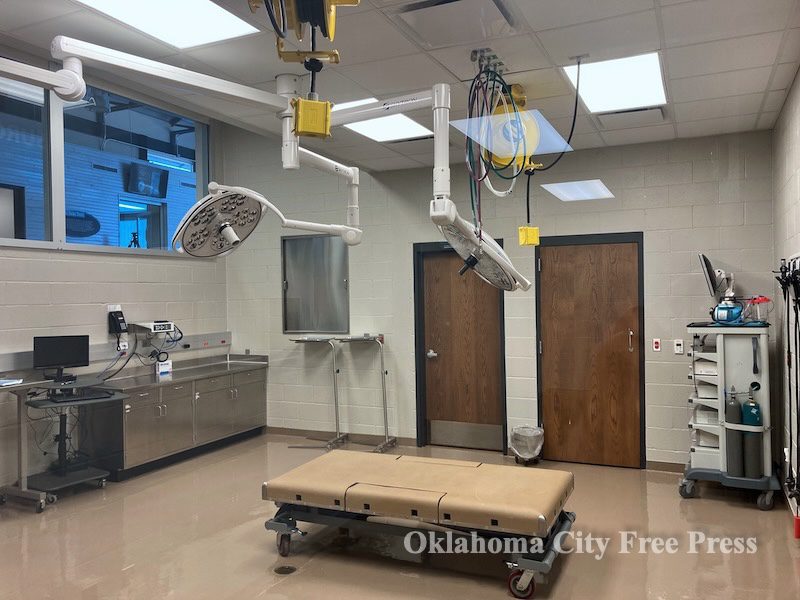
Ultimately, Dr. Armitage knows that the goal of the Blood Institute is saving lives, regardless of species, and he’s hopeful that this partnership can encourage similar outcomes all across the country.
“If we put it out there as a story in our little world of blood banking, maybe another zoo somewhere gets a centrifuge,” he told me, “because you opened up the possibility and did something creative, something that feels good. Innovation for good is a spark for so much other possibility.”
Oklahoma City Zoo and Botanical Garden will host a blood drive with the Oklahoma Blood Institute at the zoo’s Education Center Saturday, March 12th from 9 a.m. to 2 p.m. Donors will receive free admission to the zoo.
From March 14th to the 25th, free admission to the OKC Zoo will be among the available rewards for donating blood with the Oklahoma Blood Institute.
For more information, visit obi.org and okczoo.org.
Brett Fieldcamp has been covering arts, entertainment, news, housing, and culture in Oklahoma for nearly 15 years, writing for several local and state publications. He’s also a musician and songwriter and holds a certification as Specialist of Spirits from The Society of Wine Educators.
